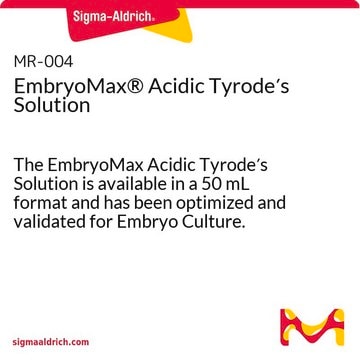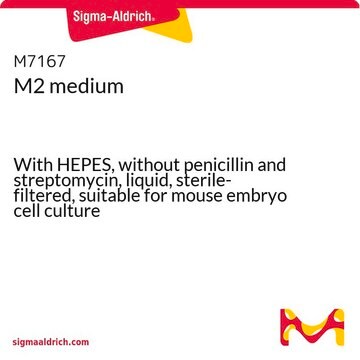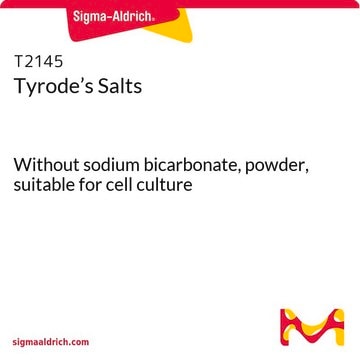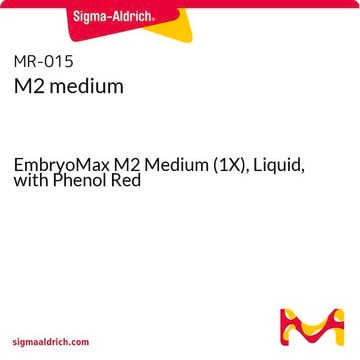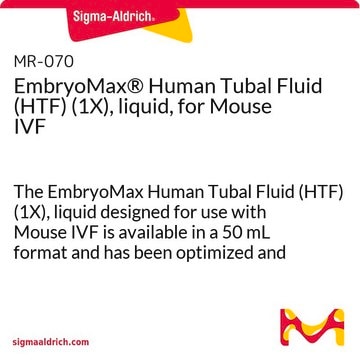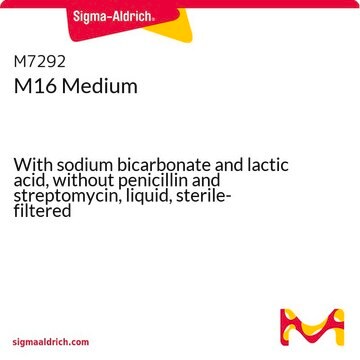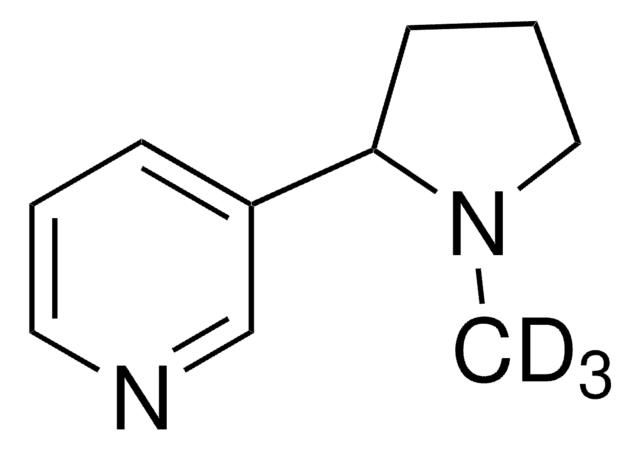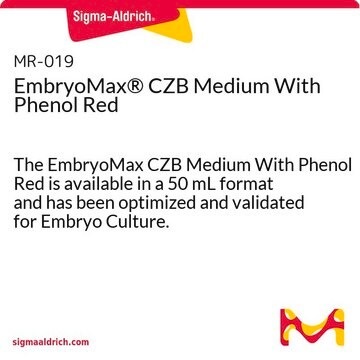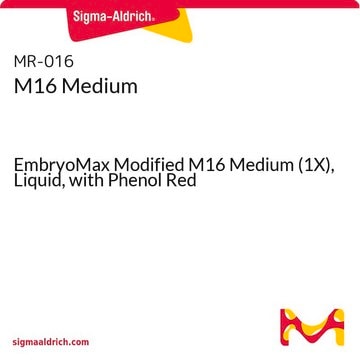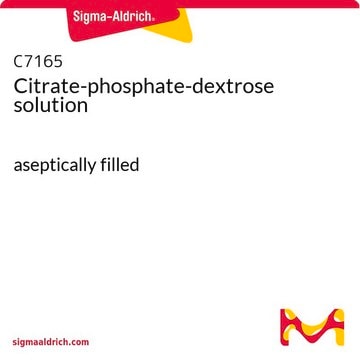T1788
Tyrode′s Solution, Acidic
liquid, sterile-filtered, suitable for mouse embryo cell culture
Synonym(s):
Cell culture solution
Sign Into View Organizational & Contract Pricing
All Photos(1)
About This Item
UNSPSC Code:
12352207
NACRES:
NA.75
Recommended Products
sterility
sterile-filtered
Quality Level
form
liquid
technique(s)
cell culture | embryo: suitable
impurities
endotoxin, tested
pH
2.5±0.3
shipped in
dry ice
storage temp.
−20°C
General description
Tyrode′s salt solution is used for diluting protein components of media of natural origin. The current role of a balanced salt solution in cell culture is multifaceted. It serves as an irrigating, transporting, and diluting agent while maintaining intra- and extracellular osmotic balance and provides cells with water and certain bulk inorganic ions essential for normal cell metabolism. It also provides the essential energy for cell metabolism and a buffering system to maintain the medium within the optimal pH range (7.2-7.6).
Application
Tyrode′s Solution, Acidic has been used for the removal of zona pellucida from oocytes/embryos.
Storage Class Code
12 - Non Combustible Liquids
WGK
nwg
Flash Point(F)
Not applicable
Flash Point(C)
Not applicable
Choose from one of the most recent versions:
Already Own This Product?
Find documentation for the products that you have recently purchased in the Document Library.
Customers Also Viewed
Sara Carvalhal et al.
Molecular biology of the cell, 28(19), 2470-2478 (2017-08-05)
Asymmetric cell divisions depend on the precise placement of the spindle apparatus. In mammalian oocytes, spindles assemble close to the cell's center, but chromosome segregation takes place at the cell periphery where half of the chromosomes are expelled into small
Liyan Sui et al.
Journal of cellular physiology, 235(10), 7030-7042 (2020-02-06)
Histone deacetylase 6 (HDAC6) participates in mouse oocyte maturation by deacetylating α-tubulin. However, how HDAC6 expression is regulated in oocytes remains unknown. In the present study, we discovered that mouse oocytes had a high level of HDAC6 expression and a
Zhao-Yang Xu et al.
Scientific reports, 5, 16978-16978 (2015-11-20)
Cep55 is a relatively novel member of the centrosomal protein family. Here, we show that Cep55 is expressed in mouse oocytes from the germinal vesicle (GV) to metaphase II (MII) stages. Immuostaining and confocal microscopy as well as time lapse
Qianhua Xu et al.
Nature genetics, 51(5), 844-856 (2019-05-02)
The oocyte epigenome plays critical roles in mammalian gametogenesis and embryogenesis. Yet, how it is established remains elusive. Here, we report that histone-lysine N-methyltransferase SETD2, an H3K36me3 methyltransferase, is a crucial regulator of the mouse oocyte epigenome. Deficiency in Setd2
Guojing Chang et al.
FASEB journal : official publication of the Federation of American Societies for Experimental Biology, 31(7), 2760-2770 (2017-03-16)
During pregnancy, placental trophoblasts at the feto-maternal interface produce a broad repertoire of microRNA (miRNA) species. These species include miRNA from the primate-specific chromosome 19 miRNA cluster (C19MC), which is expressed nearly exclusively in the placenta. Trafficking of these miRNAs
Articles
Mouse embryo media and embryo validated reagents for transgenic mouse embryo culture
Our team of scientists has experience in all areas of research including Life Science, Material Science, Chemical Synthesis, Chromatography, Analytical and many others.
Contact Technical Service
